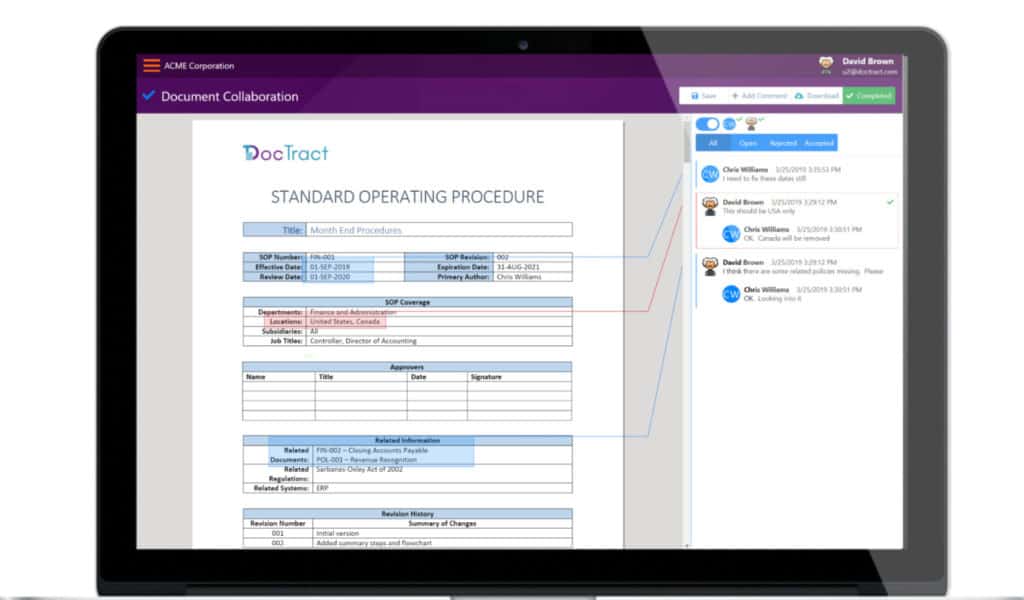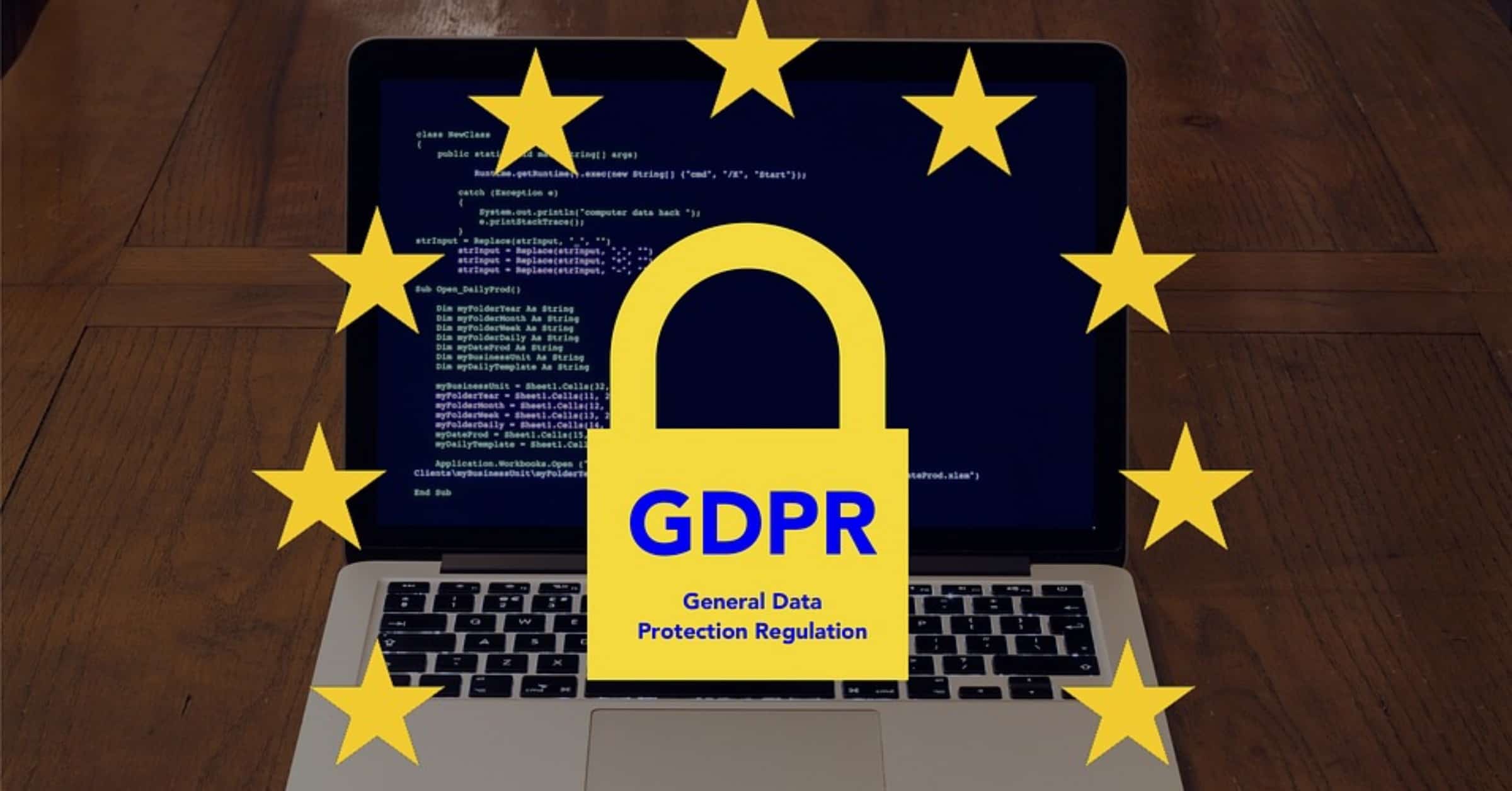Since the implementation of GDPR back in May 2018, a lot has changed and improved when it comes to the handling of personal data. Any business or individual that intends to collect or share data, must be GDPR compliant so as not to face strict fines that could cause financial impact to the recipient of the fine.
So how can you remain compliant and if you’re starting a new business, what are some good tips to ensure you obey the guidance and rules put in place? In this article, we’ll explain what GDPR is and some top tips on how to have GDPR compliance.
What is GDPR?
The General Data Protection Regulation is the toughest privacy and security law that the world has likely ever seen. Drafted up and passed by the European Union, regardless of where the organization is, if they handle data for people in the EU, it has to be handled in the right manner.
As of May 25th 2018, GDPR introduced regulations that would prioritize more control over a person’s personal data. When entrusting their personal data with an organization, they are trusting that the company will use it appropriately.
Sadly, many organizations have either taken advantage of that trust or been careless with how securely they store the data. This has led to data breaches, with 3,950 confirmed data breaches in 2020 alone.
Even though it ended up being a headache for a lot of companies to adapt and become compliant, it was certainly something that was overdue. As a result, people can have a say over how or what data is collected and how that data is stored.
Five tips for GDPR compliance
Whether you’ve already introduced GDPR compliance into your business or you have a new business and have no idea where to start, here are five tips that can help ensure you’re following the rules.
1.Conduct regular audits and assessments
As part of the rules in place for GDPR compliance, organizations are required to conduct regular audits when it comes to data processing tasks. These audits can answer questions related to data and help comply with the principles in place to help safeguard any data that you store. As an organization, it’s important to answer the following questions:
- How is data being collected?
- What data are you collecting?
- Where are you finding the data?
- How long do you keep hold of the data?
- What do you use to store the data?
- Is all the data you collect, necessary to keep?
- Who has access to the data?
As a business, you can minimize the amount of data you have hold of and can access. This helps to prevent data breaches from occurring and the pressures that come with handling so much sensitive data.
A data breach could send a company into administration because it’s not just a financial impact but a reputational one too. Some businesses may not be able to recover from such a hit, especially new businesses.
Conducting regular audits and assessments of your framework, can help improve it. It can also help to reduce risks and keep your customer’s data as secure as possible.
2.Train your employees
Human error ends up being one of the most common ways that data breaches and cybercrimes occur. A report done by PacketLabs found 43% of C-Suite leaders that reported a data breach put down human error as the second major cause.
Now, whilst you can’t guarantee human error can be eradicated, it can be significantly reduced through training. In order to be more efficient in GDPR compliance, introducing training to all your staff can be useful. GDPR states that employees are required to receive regular information on security awareness and training to ensure they are handling the data safely.

This training is essential to keep all of your staff knowledgeable when it comes to the company policies as well as the regulations that have legally been put in place. Training can be conducted in person but there are also lots of online training resources that you might be more inclined to use, especially during these remote times we live in due to COVID-19.
It’s always good to practice internet and online safety when it comes to all of your employees because even the most tech-savvy employee can fall for a cyber trap.
3.Create an incident response plan
When personal data breaches occur, of any scale, it needs to be reported to the relevant supervisory authority. This needs to happen with the first 72 hours of the data breach being detected.
With that said, it’s important to have a plan in place, otherwise, known as an incident response plan. This ensures every staff member knows the process when it comes to reporting the discovery to those who need it.
Having this plan in place will help keep all your staff on the same page and with the same knowledge. It helps improve organizational structures, whilst keeping your customers happy too. It gives peace of mind to any investors or stakeholders, as well as reduces any financial impact that could evolve from such an incident occurring.
Being responsive as a company is essential when it comes to GDPR in order to avoid any hefty fines. It shows quick thinking, which from a reputation standpoint is good to show.
4.Implement a policy management system
Policy management software is a good way to help manage communications between your employees and maintain that compliance. As an organization, you’re able to improve processes and target those areas within your business, that pose the biggest risk when it comes to data security.
There are lots of different policy management systems out there and that provides a central point for the creation of policies for storing and distributing the documents. A couple of suggestions for software to consider are:
MetaCompliance
MetaCompliance creates and manages the publishing and delivery of all business policies. Software like this one in place, can help measure and demonstrate the awareness your organization has for the risks of security and compliance. Staff can self-manage the policies as well as increase policy participation and support for disciplinary actions where necessary.
DocTract
This cloud solution tool provides policies and procedures regardless of the organization or its size. With a configurable interface, the management solution provides collaboration and automation, along with training where needed. With DocTract you get the perfect blend in automation, compliance and cost.

All of these software options provide consistency in any policies you create as a company, particularly if the task of creating one lies with more than one individual.
5.Protect your access points
There are a lot of vulnerable access points in your business that you might not have given much thought to before. However, in order to achieve GDPR compliance to its fullest, organizations are responsible for covering all angles when it comes to endpoints.
This could be unpatched systems and vulnerabilities within the day to day systems used by your employees. All of which are going to crop up a lot and it’s important to stay hot on this, regardless of how little or often your business changes. Hackers are clever and they are constantly adapting themselves to become more effective for breaking into your network.
Taking the necessary steps to protect your endpoints and showing proof of this is going to cover your back as an organization, should a data breach happen. To be seen to be active in protecting your business from all points is better than not doing enough.
The benefits of being GDPR compliant
Being GDPR compliant has its benefits and whilst it’s something you can’t avoid doing, it can do a lot more for your business if done correctly.
No hefty fines to cause financial burden
Not being compliant is going to leave you open to the regulatory authorities who are responsible for finding those organizations not complying with this law and then slapping down hefty fines. Becoming GDPR compliant can help avoid those fines and to further prevent any financial damage it causes to a business.
Your customers will trust you more
Customers value a business that is looking out for their best interests and trust is everything nowadays. According to Marketing Charts, some 8 in 10 US consumers and three-quarters of global respondents surveyed said they’d buy from a brand they trust even if another brand became the next big thing.
It goes to show that loyalty and working hard for that loyalty, can go a long way. If you’re actively making your business more compliant and placing that control of personal data back into the customer’s hands, they’ll trust you more.
Work towards GDPR compliance for your organization
GDPR is the start of a long line of laws and acts that will come into play when it comes to online security and compliance when handling data. It’s already happened in order areas of the world, such as the California Privacy Rights Act of 2020.
So, it’s better to follow the rules and suffer the pain of making your business compliant now, instead of putting it off and causing more hassle further down the line. Be proactive with GDPR compliance, not reactive.

Author Bio: Natalie Redman (LinkedIn)
Email – natalieannredman92@gmail.com
Freelance writer for many clients across multiple industries. Natalie has two years of copywriting experience. Natalie has a wide range of experience copywriting for web pages for businesses across many industries. She’s also an owner of two blog websites and a Youtube content creator.









